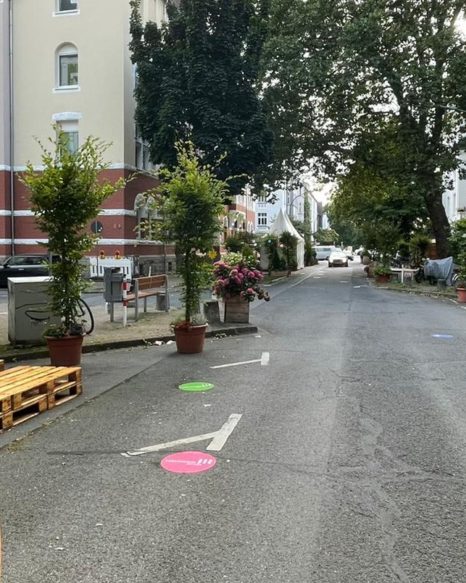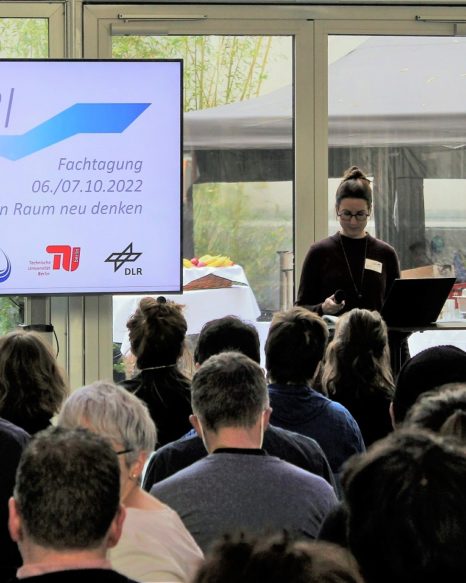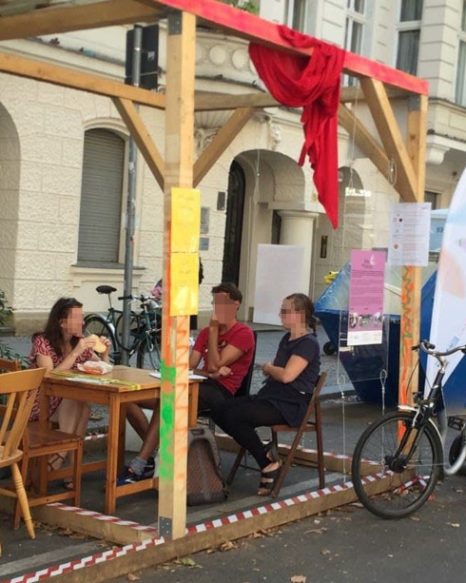Die Klimazeit bietet wöchentlich Hintergrundberichte, ordnet mit Expert*innen neueste Ergebnisse der Klimaforschung ein, erklärt in aufwändigen Grafikanimationen alles Wissenswerte rund ums Klima, hinterfragt Entscheidungen der Politik und zeigt konstruktive Beispiele, was Konsument*innen, Unternehmen und Kommunen für die Rettung des Klimas tun können.
Die Klimazeit bietet wöchentlich Hintergrundberichte, ordnet mit Expert*innen neueste Ergebnisse der Klimaforschung ein, erklärt in aufwändigen Grafikanimationen alles Wissenswerte rund ums Klima, hinterfragt Entscheidungen der Politik und zeigt konstruktive Beispiele, was Konsument*innen, Unternehmen und Kommunen für die Rettung des Klimas tun können.
Real-world experiments have become popular in urban planning and mobility research. But what contribution can they make to a sustainable and equitable transport transition? A new study shows where real-world labs fall short.
Organised by the EXPERI research group, the symposium “The Transport Transition: Rethinking Urban Space" opened on 6 October 2022 at Place of Participation – a pop-up venue on Kurfürstendamm – attended by almost 100 guests and the EXPERI team.
This chapter is devoted to mobility in France and Germany. First, key mobility indicators for the two countries are presented. This shows that private motorised transport still dominates in both France and Germany. Despite many negative effects on the climate, but also on health and quality of life, no far-reaching measures have been adopted.
Im August 2021 wurde ein Teil der Barbarossastraße in Berlin Schöneberg komplett autofrei. Konkret bedeutet das, dass es in diesem Zeitraum keinen motorisierten Verkehr im Bereich zwischen der Goltzstraße und der Kyffhäuser Straße gab und die Straße somit zum Zufußgehen, Radfahren, Spielen und zum Aufenthalt genutzt werden konnte. Das DLR Institut für Verkehrsforschung hat die Sommerstraße Barbarossa wissenschaftlich begleitet und vor sowie nach dem Projekt in Kooperation mit dem Projekt Kiezerfahren eine Haushaltsbefragung durchgeführt. Insgesamt wurden 1700 Haushalte in den angrenzenden Wohnblöcken gebeten, schriftlich oder online an den Befragungen teilzunehmen. Insgesamt haben 193 Personen an der Befragung teilgenommen (eine Rücklaufquote von 11 %).
The government wants to relieve the burden on citizens with a 9-euro monthly ticket for buses and trains. However, free public transport would be easier to implement and more affordable.
A commentary from the perspective of sustainability research on the dispute over the expansion of Berlin's A100 motorway by Sophia Becker in the "Studio 9 Interview" on Deutschlandfunk Kultur.
Should public transport be free of charge? Experience shows: Just because the bus costs nothing, far from all people stop using their cars.
Drivers have been annoyed by high fuel prices for weeks. The German government wants to take countermeasures. But it also wants to make "good old" public transport more attractive through price incentives. Is that enough to keep Germany mobile?





